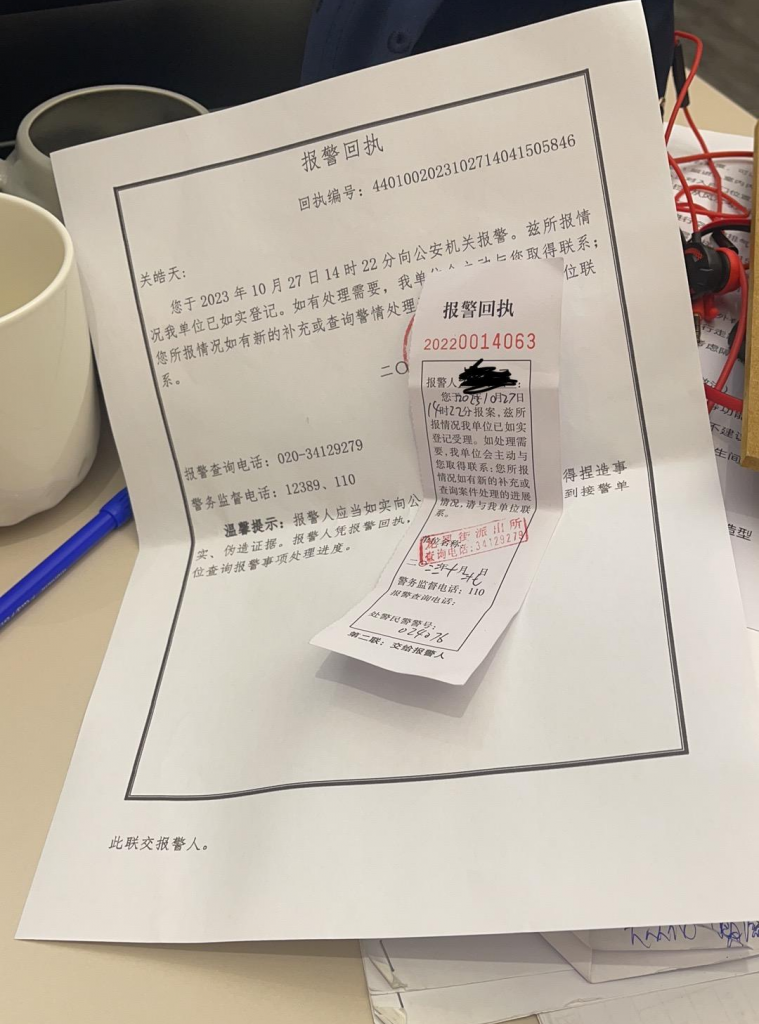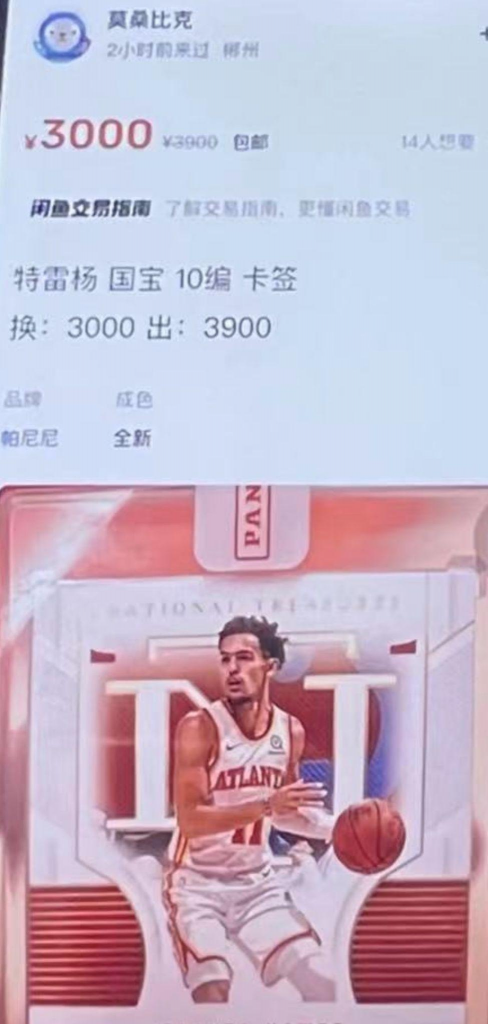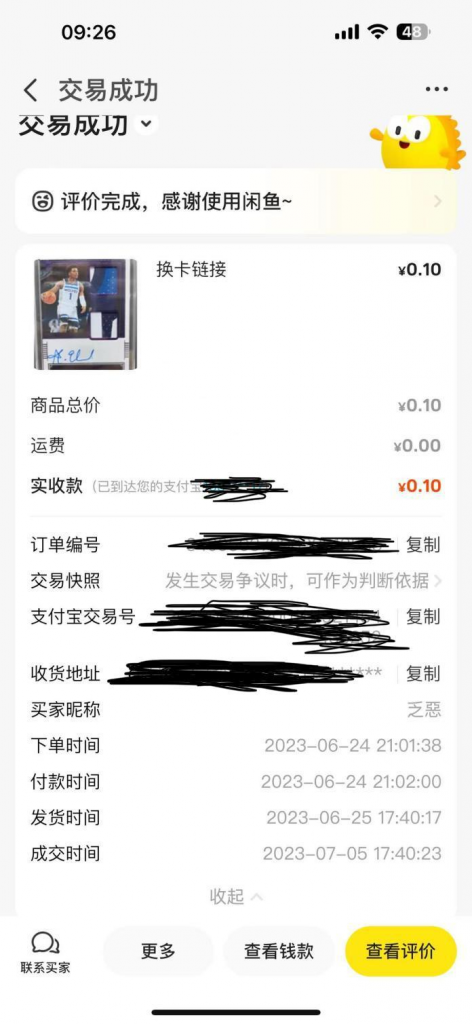Victims recover losses in NBA trading card scams.
By Sean Pan
NBA trading card collector Henry Kwan has become more cautious and prefers only offline trading after many in the circle, including himself have been scammed.
In September 2023, Kwan spotted an NBA card featuring one of his favourites, Trae Young, when surfing on Xianyu, an online trading platform in China.
“I sent the seller RMB ¥3000(US $420) using Alipay on Xianyu after a few days of bargaining on September 29th. But despite waiting for a couple of weeks, I did not receive the card he had promised to send me by post,” Kwan recalls.
“I found out that I was scammed on October 25th, when the swindler kept holding me up on the deal we agreed on. I asked for help from other card collectors in a chat group. They told me the seller I traded with was a scammer,” Kwan says.
“Some in the NBA trading card chat group told me the scammer made use of an account owned by another collector to sell me the card,” he adds.
Kwan vowed to bring the scammer to justice and reported the case to the police on October 29th. “I think the trading card industry in China should adopt good practices so that we can do trading in a safe environment,” he says.
Kwan filed his case to the police together with four other victims and the losses have been recovered. Meanwhile, they still pursue the case for a formal apology and further compensation.

Kwan shares that the scammers post pictures of NBA cards owned by others to their own Xianyu accounts to target victims, and it was confirmed by the scammer in his confession to the police on November 7th, according to an official transcript from the police.
Another NBA card collector, Anthony Ke, who is also in the same WeChat group with Kwan, was scammed by the same fraudster in July using another Xianyu account.
“I offered to trade five NBA trading cards with a total value of more than RMB ¥5500 (US $800) for one NBA card the scammer displayed on his Xianyu account with similar value,” Ke says.
“The scammer using a different user name agreed. He suggested exchanging our cards directly and that we should avoid paying large amounts of money through Xianyu to maintain cash flow when usually we card traders will pay each other the actual price of the card we agree to trade through Xianyu to ensure security and avoid scams,” says the 30-year-old man.

“I trusted him, so I sent him my cards. He finally showed me a receipt stating the package was sent out after I had waited for a few weeks. But it was sent to Shandong province, but I live in Shanghai,” the card collector says.
“He told me he had sent the package to the wrong address, which is a card shop in Shandong. He even gave me the contact information of a shop staff member. The card store’s staff told me to wait for my cards,” Ke says.
“But It turns out all the contacts are from different WeChat accounts owned by the same person. The scammer uses different chat accounts with different identities,” Ke states.
Ke praises Kwan’s efforts in filing all of the victim’s cases together with the police. “It takes great effort to gather evidence to prepare for the case. I really appreciate the efforts he has made to fight for other victims by filing his own case. It is very time-consuming, and many victims prefer to stay silent,” he adds.
“Without Kwan, we might have lost all our money and cards, and the scammer can achieve its purpose,” he says.
High school student Ben Chan* reported being scammed using the same method stated by Ke.
“I sent the dealer three cards with a total value of RMB ¥2000 (US $300) and gave him an additional RMB ¥200 (US $30) through WeChat Pay for a card autographed by Stephen Curry,” the high school student says.
“The fraudster gave me fake information, such as a fake delivery message, to postpone our deal and treat me like a fool,” Chan says.

“Dealing with these issues took up a lot of my time and even affected my studies, so I’m glad that Mr.Kwan gathered, including me, the number of five victims and filled all our cases together, reporting it to the police to resolve the problem,” he says.
Lawyer Chan Weijie says according to Article 266 of the Criminal Law of the People’s Republic of China, if the amount of fraudulent public or private property is relatively large, the person is subject to fixed-term imprisonment of not more than three years, criminal detention or control and a penalty.
“The scammer in Kwan’s case falls into the category under Article 266 if he is 18 or above. Possession of property of others by concealment reaches a “relatively large” amount – and in this case more than RMB ¥3000 (US $420),” he says.
Chan states the suspect’s criminal record has now been left in the Guangdong public security system network, and the victims can settle the matter privately, such as proposing a claim for compensation for mental disturbance and a formal confession.
“When dealing with scams, no matter how much money is involved, victims should seek help from the police as soon as possible,” Chan urges.
*Name changed at request of the interviewee
Sub-edited by Christine Tang







































